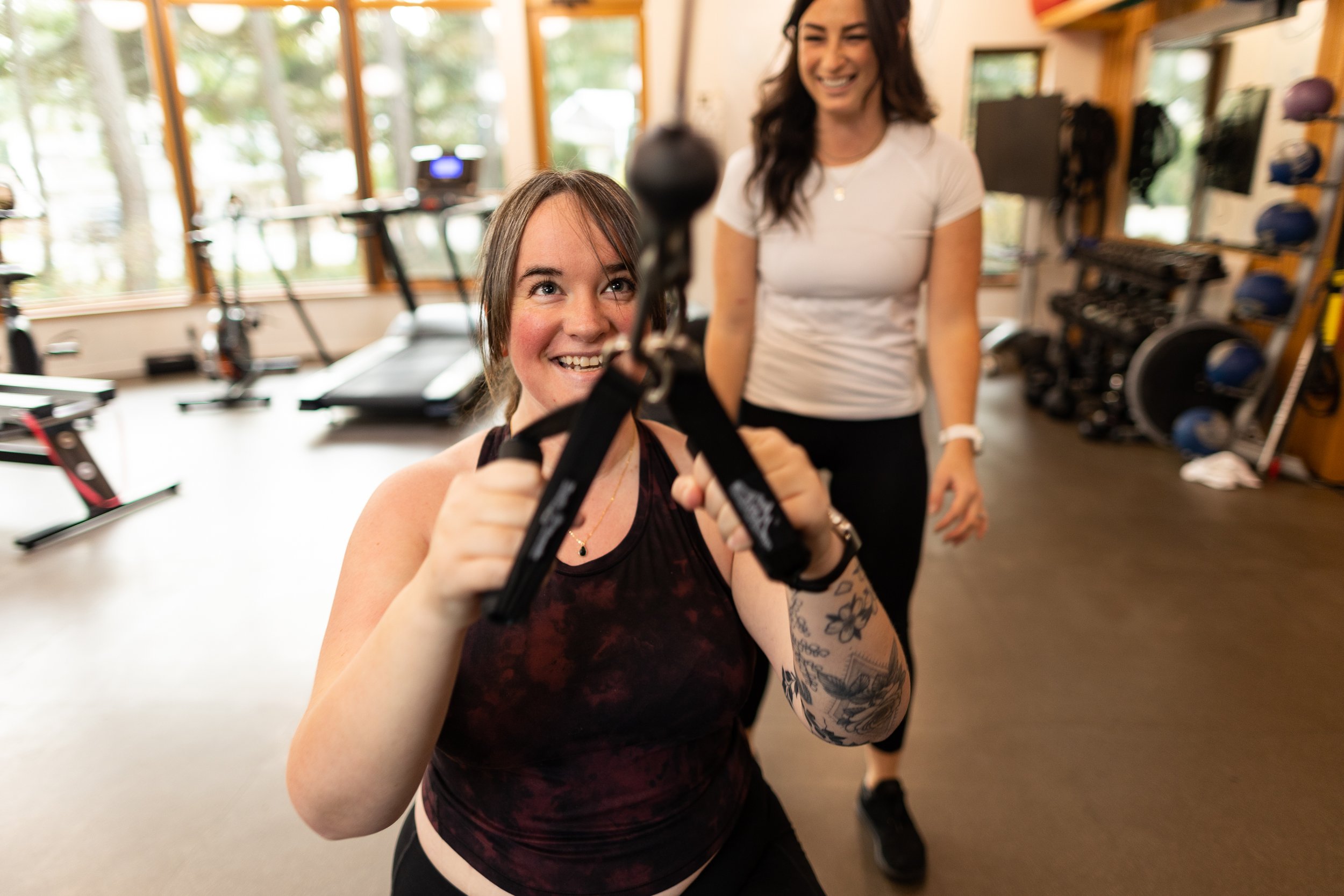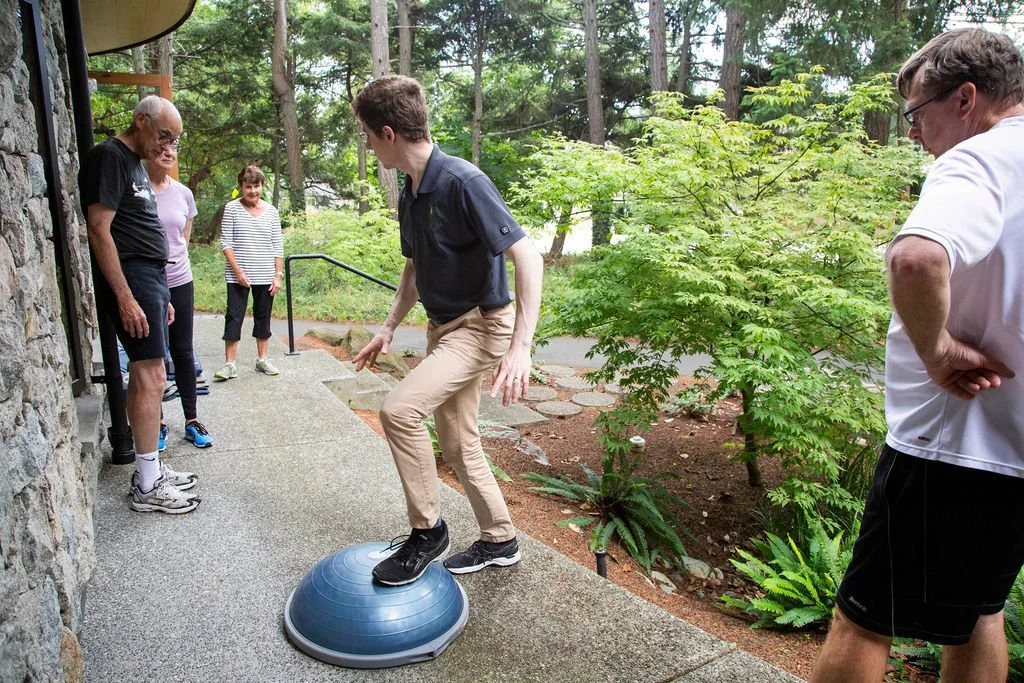The Mental Health Benefits Of Exercise—Lift Your Mood
The benefits exercise can have on anxiety, depression, and overall mental health have been well documented. Even something as short as a 10-minute walk can help you feel better and alleviate some anxiety symptoms.
But why?
We’ve all heard of the runner’s high at this point (mainly because runners won’t stop talking about it), right? Well, vigorous exercise—like running— releases endorphins, which are natural hormones that lower stress, decrease pain and enhance your overall sense of mental well-being.
Exercise provides a small jolt to the brain’s reward centers—the system that helps you anticipate pleasure, feel motivated and maintain hope. Regular exercise over time helps remodel your reward system, leading to higher levels of dopamine and a bigger number of available dopamine receptors. In this way, exercise can aid in relieving depression while also expanding your capacity for joy.
But even low-intensity activity can help by releasing neurotrophic (or growth) factors, which cause nerve cells to grow and make new connections. This improvement in brain function can help you feel better and improve your mood.
UNDERSTANDING HOW EXERCISE HELPS MENTAL HEALTH
You don’t HAVE to exercise for your body to release endorphins, sometimes physical activity is enough. You might be wondering what the difference is between the two—here’s the low-down:
Physical activity is any activity that activates your muscles and requires energy such as manual work, household chores or leisure activities (like walking).
Exercise is a structured and repetitive body movement specifically intended to improve physical fitness (like working out at the gym).
The good news is that both are good for your mental health. As long as you are getting off the couch and moving around, you can boost your mood.
BENEFITS OF THERAPY
While moving around and exercising (at recommended levels) are great ways to improve your mood, it’s not always enough. Sometimes people may need to combine exercise with therapy to help the anxiety symptoms and bad mood fade away.
Therapy can help you learn to cope with stress and other life events in a healthy way, increase your confidence, help you navigate social interactions and improve your mood. These emotional and psychological benefits trickle down to physical benefits too such as lower stress rates and better sleep.
The combination of physical and psychological remedies can help set you up for long-term mental well-being, allowing you to set new goals and work towards achieving them without feeling too overwhelmed when obstacles get in the way.
HOW MUCH EXERCISE IS ENOUGH?
For most healthy adults, at least 150 minutes (2.5 hours) of moderate aerobic exercise is recommended. If you’re short on time, you can opt for a minimum of 75 minutes of vigorous aerobic activity per week. You can also get an equal mix of the two types.
You should aim to exercise most days of the week, and even small amounts of physical activity can help. 10-15 minutes of exercise at a time add up and contribute to positive health benefits. Plus you’ll feel good about maintaining a consistent routine.
HOW TO GET STARTED & STICK WITH IT
Starting a routine can be tricky and frustrating. Even with the best intentions, sometimes life just gets in the way and it can feel overwhelming to keep a steady rhythm going.
Don’t worry though, no one is expecting you to start going to the gym five times a week.
Pick something you enjoy doing: if you hate the gym, definitely don’t do that. Maybe yoga is more your speed—or pilates. Studies have shown that yoga and other mind-body exercises helped reduce anxiety the most, while resistance exercise appeared to help the most with depression.
Pick something you enjoy doing: if you hate the gym, definitely don’t do that. Maybe yoga is more your speed—or pilates. Studies have shown that yoga and other mind-body exercises helped reduce anxiety the most, while resistance exercise appeared to help the most with depression.
Start small and set reasonable goals: it’s good to have ambitious exercise goals, and while you might be able to keep up in the short term, over time you might find it harder to stick with it. That’s why it’s better to set small goals and progressively work your way towards more ambitious targets. A 5-minute activity can turn into 10, and then maybe 15.
Keep track: Measuring your progress using a simple tracking sheet, or one of the many apps out there will help keep you motivated and act as a reminder of how far you’ve come. Research shows that people who self-monitor in this way are more than twice as likely to stick to their plan over time.
Self-care is not a chore: it’s easy to see exercise as a tedious task that you have to do, but try to shift your perspective. Think of all the benefits you get from exercising - not only is your body getting stronger and fitter, but you’re also boosting your mood at the same time!
Persistence, not perfection: no matter how motivated you are, sometimes life gets in the way and stops you from doing the things you intended to do. Don’t get too discouraged if you miss a day of exercise, just focus on staying consistent and resuming the routine the next day. Or if you’re finding it too difficult to maintain, maybe you’ve set your goals too high and you need to reevaluate your objectives. Be kind and patient with yourself.
Seeking out a professional for support is a great way to stay with a routine. With regular appointments and someone else to hold you accountable, you’ll feel more motivated to stick with the plan. Your personal trainer, kinesiologist or change coach can help keep things interesting by switching up the exercises you’re doing and keeping track of your progress.
When Exercise Isn’t Enough
If you’re feeling persistent sadness, anxiety, or are affected by trauma that impacts your everyday life, exercise may not be enough to help improve your mood in the long run.
Life is hard, and even common situations may warrant therapy sessions to help you process and cope with these events. The earlier you recognize you may need professional help, the better chance you have of feeling better faster.
How Tall Tree Can Help
Whether you’re exercising because you love it, or because it helps your mental health, our multidisciplinary team can develop a tailored program that will take you to new heights using the latest insights and technology.
Our specialized sports performance therapists, kinesiologists and change coaches across Vancouver and Victoria can support you to break through plateaus and achieve meaningful results—no matter your goals.
Book your first session today and begin your path to better health.
If you feel like exercise is not enough to help manage your symptoms of anxiety and depression, our registered counsellors and psychologists can also guide you.
Our integrated and comprehensive approach to your mental health ensures you receive the best possible care for your needs, and we work as a team to assist you on your path to recovery.
Some helpful resources:
Training Your Mind for High Performance …and Everyday Life.
Anxiety and Depression: Effective Strategies for Managing Symptoms To Thrive Through University


































